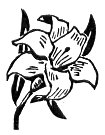p. 854
the close dealer, the boldness of the unscrupulous operator, even by the knaveries of the stock-board and the gold-room; to crawl up into place by disreputable means or the votes of brutal ignorance,–these also are deemed to be among the great successes of life.
But that which is the greatest battle, and in which the truest honor and most real success are to be won, is that which our intellect and reason and moral sense, our spiritual natures, fight against our sensual appetites and evil passions, our earthly and material or animal nature. Therein only are the true glories of heroism to be won, there only the successes that entitle us to triumphs.
In every human life that battle is fought; and those who win elsewhere, often suffer ignominious defeat and disastrous rout, and discomfiture and shameful downfall in this encounter.
You have heard more than one definition of freemasonry. The truest and the most significant you have yet to hear. It is taught to the entered Apprentice, the Fellow-Craft, and the Master, and it is taught in every Degree through which you have advanced to this. It is a definition of what Freemasonry is, of what its purposes and its very essence and spirit are; and it has for every one of us the force and sanctity of a divine law, and imposes on every one of us a solemn obligation.
It is symbolized and taught, to the Apprentice as well as to you, by the COMPASS and the SQUARE; upon which, as well as upon the Book of your Religion and the Book of the law of the Scottish Freemasonry, you have taken so many obligations. As a Knight, you have been taught it by the Swords, the symbols of HONOR and DUTY, on which you have taken your vows: it was taught you by the BALANCE, the symbol of all Equilibrium, and by the CROSS, the symbol of devotedness and self-sacrifice; but all that these teach and contain is taught and contained, for Entered Apprentice, Knight, and Prince alike, by the Compass and the Square.
For the Apprentice, the points of the Compass are beneath the Square. For the Fellow-Craft, one is above and one beneath. For the Master, both are dominant, and have rule, control, and empire over the symbol of the earthly and the material.
FREEMASONRY is the subjugation of the Human that is in man by the Divine; the Conquest of the Appetites and Passions by the Moral Sense and the Reason; a continual effort, struggle, and warfare of the Spiritual against the Material and Sensual. That
p. 855
victory, when it has been achieved and secured, and the conqueror may rest upon his shield and wear the well-earned laurels, is the true HOLY EMPIRE.
To achieve it, the Mason must first attain a solid conviction, founded upon reason, that he hath within him a spiritual nature, a soul that is not to die when the body is dissolved, but is to continue to exist and to advance toward perfection through all the ages of eternity, and to see more and more clearly, as it draws nearer unto God, the Light of the Divine Presence. This the Philosophy of the Ancient and Accepted Rite teaches him; and it encourages him to persevere by helping him to believe that his free will is entirely consistent with God’s Omnipotence and Omniscience; that He is not only infinite in power, and of infinite wisdom, but of infinite mercy, and an infinitely tender pity and love for the frail and imperfect creatures that He has made.
Every Degree of the Ancient and Accepted Scottish Rite, from the first to the thirty-second, teaches by its ceremonial as well as by its instruction, that the noblest purpose of life and the highest duty of a man are to strive incessantly and vigorously to win the mastery of everything, of that which in him is spiritual and divine, over that which is material and sensual; so that in him also, as in the Universe which God governs, Harmony and Beauty may be the result of a just equilibrium.
You have been taught this in those Degrees, conferred in the Lodge of Perfection, which inculcate particularly the practical morality of Freemasonry. To be true, under whatever temptation to be false; to be honest in all your dealings, even if great losses should be the consequence; to be charitable, when selfishness would prompt you to close your hand, and deprivation of luxury or comfort must follow the charitable act; to judge justly and impartially, even in your own case, when baser impulses prompt you to do an injustice in order that you may be benefited or justified; to be tolerant, when passion prompts to intolerance and persecution; to do that which is right, when the wrong seems to promise larger profit; and to wrong no man of anything that is his, however easy it may seem so to enrich yourself;–in all these things and others which you promised in those Degrees, your spiritual nature is taught and encouraged to assert its rightful dominion over your appetites and passions.

Moe is the founder of GnosticWarrior.com. He is a father, husband, author, martial arts black belt, and an expert in Gnosticism, the occult, and esotericism.






